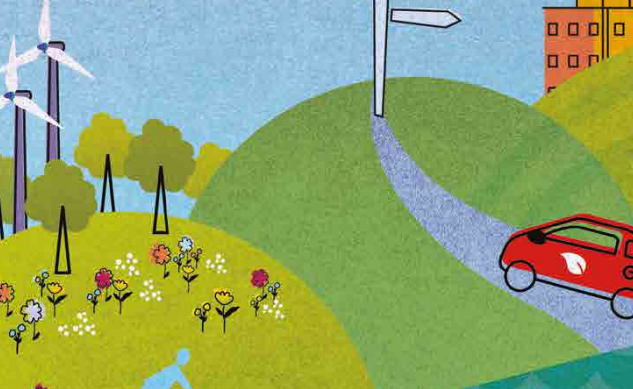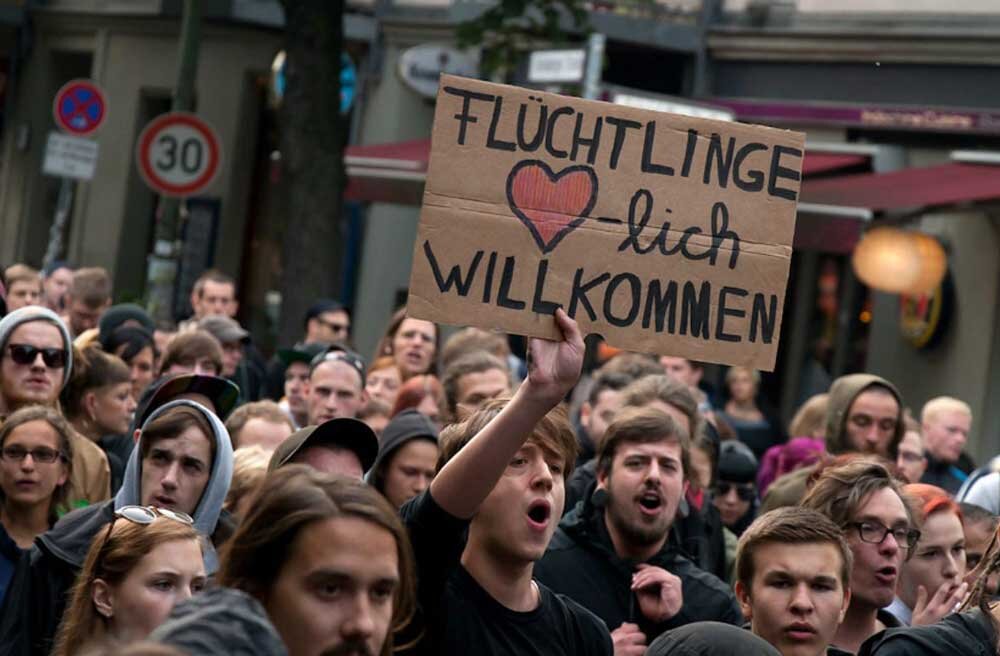
Climate Action Plan 2021: A Failure To Secure Our Future
Today the Irish Government has published its Climate Action Plan 2021 with the title “Securing Our Future”.
According to the document itself, it aims to “set a roadmap for taking decisive action to halve our emissions by 2030 and reach net zero no later than 2050, as we committed to in the Programme for Government.”
This article highlights the alarming lack of clarity and commitment contained within this plan, and the troubling issues raised in the section focused on electrifying transport.
Net Zero By 2050
Immediately alarm bells should be ringing loudly due to this phrase. Despite the executive summary of the Plan stating “the science is indisputable,” by reiterating a commitment to net-zero by 2050, they are already consigning millions of the planet’s citizens to death – and likely around a third of all plant and animal species to extinction by 2070.
The recent IPCC report, published in August 2021, clearly and repeatedly states that 2050 is simply too late, and that we must go beyond the paltry net-zero targets set by our Government:
“It would take several centuries to millennia for global mean sea levels to reverse course even under large net negative CO2 emissions”.
Once again, this is a transparent demonstration that the Irish Government is not serious about treating the emergency like an emergency.
This Climate Action Plan 2021 comes three years after the Government declared a Climate Emergency, and yet the outcome still seems to be that the patient is just consigned to a 30 year wait in the Emergency Room before they can receive the necessary treatment.
Just Transition
A just transition is essential in the face of the Climate Crisis.
Transport accounts for over 20% of all CO2 emissions in Ireland. Tackling these emissions is vital to addressing the Climate Crisis and improving public health. Credit: CSO
It recognises the need for global equity, where the greatest emitters bare the greatest burden for change, and also seeks to protect those in both the domestic and international society who are already exposed to the greatest harm, and who often have the least means to mitigate the impact of the Climate Crisis.
While several pages are dedicated to the topic of a just transition in the Plan, they fail to establish who the most vulnerable people at home and abroad are, and instead focus on things like “skills development” – as seen during the Covid-19 pandemic, this Government is solely focused on protecting business above all else, not people. And this appears to also be true in the face of the Climate Crisis.
This is reinforced by the fact that a key agenda point for a just climate transition in the report is: “Establish a Just Transition Commission”.
The Climate Action Plan 2021 is incredibly vague in the targets it lays out. Here we see there will be a “focus on BEVs” by 2030 - whatever that means. Credit: Irish Government
The Government declared a Climate Emergency in 2019 and have sat around doing nothing to address it, and three years later is now proposing – not instigating, just suggesting – the creation of a Just Transition Commission.
This approach of ‘sorry I’m late with my homework’ is a consistent theme throughout the Plan.
Disclaimer
Before we address the issue of electrifying transport, it is important that we first make the following clear:
Public transport and active travel are indisputably more sustainable and essential in the face of the Climate Crisis than any other form of transport. Any efforts to increase uptake of these modes of transport should be applauded and prioritised.
However, with more than 6 million tonnes of CO2 being emitted by Ireland’s cars each year, and more than 500,000 people dying prematurely due to air pollution across the EU each year, electric vehicles can play an important role in reducing our emissions.
Especially given Ireland’s considerably higher use of diesel vehicles, and a cultural preference for personal transport over public transit.
Vehicle Electrification
The transport section of the Climate Action Plan 2021 makes for very alarming reading.
The Government has consistently conflated fully-electric battery electric vehicles (BEVs) with hybrid vehicles – the latter still being wholly dependent on fossil fuels, and therefore still playing a fundamental role in worsening both public health and the Climate Crisis.
This can be clearly seen in Section 15.3.3 where the Plan states “There are currently over 45,000 EVs registered on Irish roads”.
This data is taken from a report by the Sustainable Energy Authority of Ireland and includes both the figures for BEVs and plug-in hybrids – remember that the latter are still reliant on burning fossil fuels, as well as the processes of extraction, refinement and transport that are associated with them.
Conflating the two demonstrates a clear lack of knowledge or a disinterest in addressing the issue. See our article Electric Not Electrified for more on this topic.
More worrying, it is a clear demonstration that the Irish Government is not working with accurate data when it is calculating its actions to cut emissions by 2030.
This is compounded by the Table 15.5 which states that by 2030, the Irish Government aims to have 845,000 electrified vehicles on the road “with a focus on BEVs”.
This statement made in the Climate Action Plan 2021 is both untrue and misleading. There are not 45,000 EVs on the roads of Ireland today - this includes both BEVs and hybrids, the latter being reliant on fossil fuels
Considering that Ireland is due to ban the sale of new internal combustion engine vehicles by 2030, you would hope that it wouldn’t just have a “focus on BEVs,” and that hybrids – which are internal combustion engine vehicles in disguise – would also be banned by this date.
The vagueness of this language is driven home by the line below relating to low-emissions vans “95,000 with a stronger focus on BEVs”.
This raises the question of what a “strong focus” actually looks like, and why the Irish Government is not willing to commit to supporting BEVs if it is serious about cutting greenhouse gas emissions from the transport sector.
One again, this is reinforced by the vague promise to establish “a dedicated Office of Low Emitting Vehicles” with no timeline for when this Office will be implemented.
BEVs are, by far, the most efficient vehicles, and their adoption is essential to cut greenhouse gas emissions and to improve public health. Credit: Transport&Environment
We simply don’t have time to waste on ill-defined promises – especially when the Irish Government has wasted so much of our precious little time already.
EVs & Just Transition
The vague promises continue with assurances to “support the expansion of the EV charging network”, “review and update VRT incentives” and “review and amend building regulations regarding the installation of charging points”.
But again no timelines or figures for investment are provided.
More alarmingly, it also demonstrates that the Government is solely focused on new BEVs only. There is not a single mention in the report of the need to support second-hand BEVs, which are currently thin on the ground due to the paltry incentives available in Ireland, and are therefore more expensive due to their lack of availability.
It is essential for a just transition in Ireland that the Government removes obstacles to BEV imports, and provides incentives to make them more affordable to the average person.
This will simultaneously overcome the only major obstacle to BEV adoption – upfront cost – and ensure that there is ample supply of affordable BEVs to meet the already significant demand.
Again, this is not mentioned at all.
If we do not make provision for affordable BEVs, we will face a near future where road transport emissions are not cut in line with the goals set out in the Paris Agreement.
Furthermore, the Irish Government will have also significantly worsened energy poverty across the country through necessary carbon tax increases, which will increase the price of fuel, without any viable alternative for lower-income people.
We are long past the time for plans and promises, we need action and we need action immediately. This Plan, and the Government of Ireland are not fit for purpose in the face of the Climate Crisis.
Why Your Carbon Footprint Matters
While the concept of a personal carbon footprint is the creation of Big Oil, we highlight why it still matters in the face of the Climate Crisis
IPCC Report: Window To Act On Climate Crisis Closing Fast
Find out why we're in the midst of a Climate Crisis, rather than living alongside Climate Change - and why this matters for encouraging climate action







